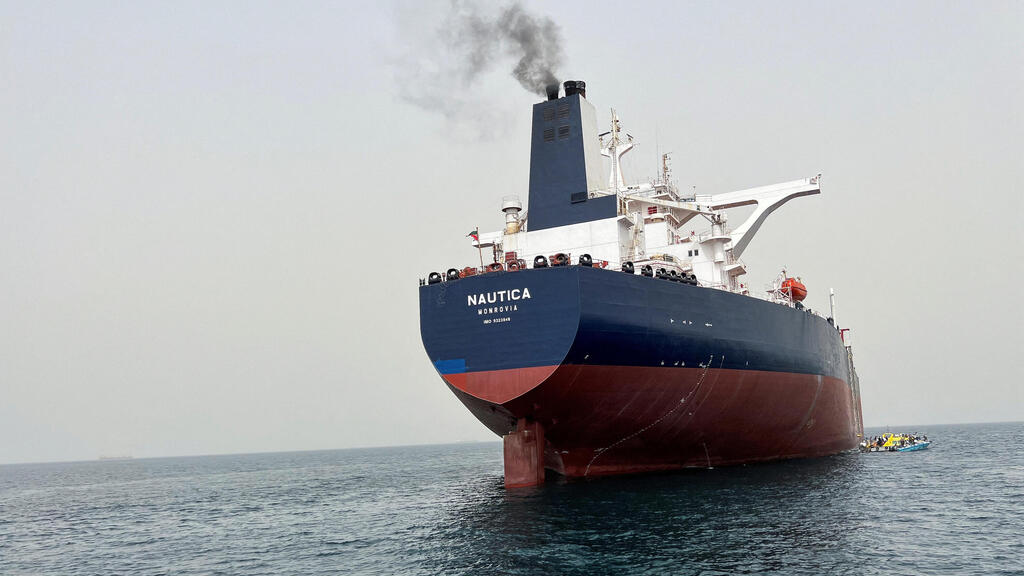Getting your Trinity Audio player ready...
With each passing day, the global shipping crisis intensifies due to repeated attacks by Houthi rebels from Yemen on vessels in and around the Bab el-Mandeb strait. These attacks, backed by Iran, are prompting major international shipping companies to announce a halt to navigation in the Red Sea, opting instead for the longer route around Africa's Cape of Good Hope.
Read more:
Just on Monday, British Petroleum, a giant in the energy sector, declared that its tankers would not sail in the Red Sea until further notice – a statement that serves as a warning signal to energy markets worldwide and ironically brings the potential solution to the crisis under closer scrutiny.
For the global energy market, the significance of the Suez Canal, Bab el-Mandeb and the Red Sea is paramount. The majority of oil and natural gas exports from Gulf countries to Europe and North America pass through these vital waterways, both by sea and through pipelines. In the first half of the current year, shipments of oil through these routes constituted approximately 12% of the total globally traded oil at sea. Likewise, liquefied natural gas shipments through these pathways represented 8% of the global trade in this commodity, according to data published by the U.S. Energy Information Administration.
The Suez Canal, connecting the Red Sea to the Mediterranean, is not the sole means of transporting oil from the Red Sea. The Sumed or Suez-Mediterranean pipeline, established by several Arab countries in 1974, serves as an alternative for oil transportation outside the Suez Canal. Spanning a submarine-like structure in the Gulf of Suez and extending through Egyptian territory to the Mediterranean port city of Alexandria, this pipeline can handle up to 2.5 million barrels per day. However, its capacity largely depends on the entry of tankers into the Red Sea.
In other words, more oil barrels pass through the Red Sea than through Bab el-Mandeb and the Suez Canal combined. The situation is different for liquefied natural gas, as the minimal amounts of this commodity in the Red Sea are nearly unused, unlike in Bab el-Mandeb and the Suez Canal.
Given these data, the ongoing Houthi attacks are expected to have an impact on the global oil market, but the depth of their influence hinges on future developments. Thus far, the events in the Bab el-Mandeb region have had a minor impact on prices, thanks to positive supply indicators, primarily due to increased output from the United States. However, the weakened dollar and the uncertainty surrounding the duration of Houthi attacks amplify the anticipation of strengthening oil prices, as long as there is no resolution to the Yemeni rebels' insurgency.
As more and more companies announce that they are avoiding sailing in the Red Sea, the effect on the oil market is likely to intensify. In this scenario, where Houthi attacks persist over time and additional companies are forced to change routes, it is reasonable to expect that oil shipping prices will rise to various destinations worldwide, including Europe. This is driven both by the increased cost of the commodity itself and the adjustment of insurance premiums. In light of reports about the U.S. considering forming an international naval coalition to ensure freedom of movement in the Bab el-Mandeb region, the Houthis also threatened to attack the oil facilities of neighboring countries, notably Saudi Arabia and the UAE, two significant oil producers in the Middle East.
The evolving situation underscores the potential for a broader impact on global energy markets and emphasizes the need for a comprehensive strategy to address the challenges posed by the Houthi insurgency and ensure the stability of oil shipments through critical maritime routes.
Nevertheless, it seems that the significant impact goes far beyond what the market has experienced in recent weeks, bringing the crisis closer to its end. Countries such as China and India, with close ties to Iran, are sensitive to high oil prices. If such a scenario persists, they may be compelled to intervene and exert their influence to bring about stability.
The situation highlights the broader implications that extend beyond recent market fluctuations. Nations like China and India, that have close alliances with Iran, are particularly responsive to elevated oil prices. Should a scenario like this persist, they might find themselves compelled to intervene, leveraging their influence to restore stability and mitigate the impact on global energy markets.



